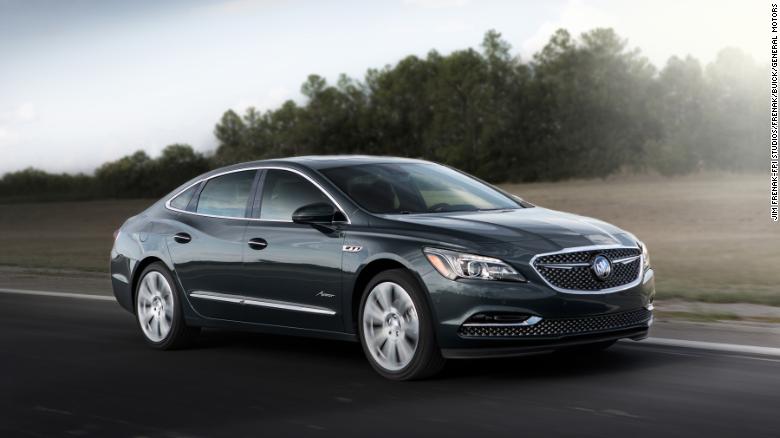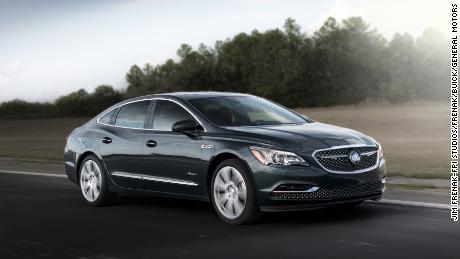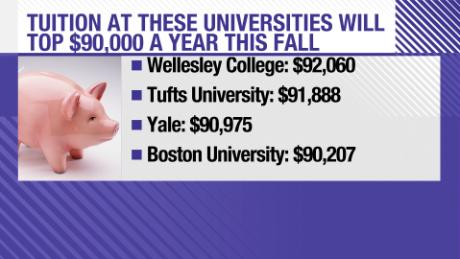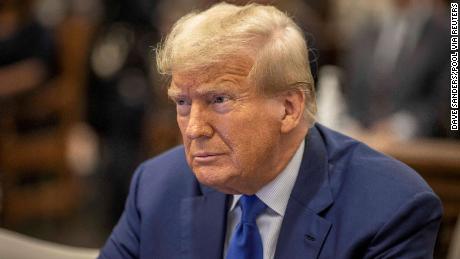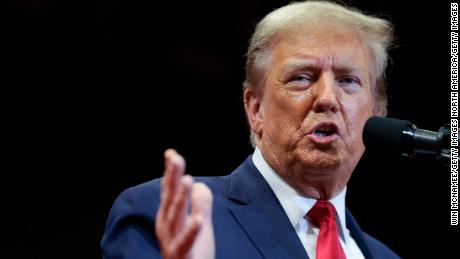New York (CNN Business)General Motors chief executive Mary Barra headed to hostile territory Wednesday: Capitol Hill.
The automaker's plans to close four US plants has turned GM into "the most thoroughly disliked company in Washington, DC, right now," Debbie Dingell, a Democratic member of the House from Michigan, told CNN last week.
Barra aimed to change that in her meetings with members of Congress, which started Wednesday. Additional meetings are scheduled for Thursday.
She sat down Wednesday with congressional delegations from Ohio and Maryland, two of the states where the targeted plants are located. She's due to meet Thursday with legislators from Michigan, the third state.
But Barra didn't give the members she met with Wednesday anything more than a promise that the company would negotiate whether it could find new product to keep the plants open when it holds contract talks with the United Autoworkers union next year. And that didn't make them particularly happy.
"She can talk more about what that means, but we're very disappointed by that decision," said Rob Portman, a Republican member of the Senate from Ohio, where the company said it plans to shut its 52-year old facility in Lordstown. While he described the meeting with Barra as a "good, candid discussion," he wanted more.
"General Motors has made an announcement that they plan to build 20 new electric vehicles in the next five years, 20 new models. We want one or more of those models to be built in Lordstown, Ohio. That's where it belongs."
GM said it needs to cut about 8,000 salaried workers, as well as about 3,300 hourly workers at the four US plants, to cut costs and invest more in the next generation of electric and self-driving cars.
The plants currently slated to close are in Lordstown; Detroit and Warren, Michigan; and Baltimore.
The plans to shutter the plants has caused a backlash on both sides of the aisle.
"This company has done something that nobody else has done for the last two years ŌĆö Republicans and Democrats united," said Dingell, a former GM executive, who is due to be at Thursday's meeting.
In one example of that bipartisanship, Democratic Senator Sherrod Brown of Ohio and Portman met with Barra together. The senators had earlier released a joint statement calling on GM to change its decision on the Ohio plant.
"Senator Portman and I are committed to saving these jobs and call on GM to work with us to find solutions," said Brown.
After Wednesday's round of congressional meetings, Barra released a statement indicating the discussions were "constructive," and that she shared members of Congress' concerns on the affect of the GM decision on employees and communities.
"These were very difficult decisions ŌĆö decisions I take very personally," she said. "I informed the members that many hourly employees at the impacted U.S. plants will have the opportunity to work at other U.S. GM plants and that we are committed to working with them to minimize the impact on the communities."
Tim Ryan, a Democratic member of the House from Ohio, tweeted Wednesday that since GM's announcement, he's "heard first-hand from countless people across Northeast Ohio who are scared for their financial security and their community's future."
"I conveyed that to Mary Barra today and once more insisted that GM do everything it can to place a new product at the Lordstown plant," he said in a pair of tweets. "These are not just numbers on a page, but people's lives at stake. I also reaffirmed my desire to work with her, the Administration, and my colleagues on the Hill to bring this problem to a resolution that supports the workers who have done nothing wrong."
The meetings come just as the Trump administration is pressuring European carmakers to increase production in the US ŌĆö and asking Congress to ratify Trump's replacement for the North American Free Trade Agreement, which the Trump administration hopes will attract manufacturing back to the United States.
Dingell said last week that she particularly wants to ask GM if it planned to build new plants in Mexico at the same time they are planning to close US plants.
"We need to get a far better understanding of what GM is up to. I don't like what I'm hearing on the grapevine, which is that they're going to move production to another country," she said. "We need to understand what their product plans are."
But GM has insisted it is not looking to shift production to other countries. Instead it will stop building the cars built at the Lordstown and Detroit plants, such as the Chevrolet Cruze, Impala and Volt, the Buick LaCross and the Cadillac CTS. engines for those models. GM says it's dropping those products because there's less demand for car models as car buyers shift to SUVs.
GM's plans have also come under attack by President Donald Trump, who vows to take action to cut government subsidies going to GM as a way of forcing it to keep the plants open. Dingell said she would support Trump taking action against her former employer.
"I'm not sure they showed an ounce of support or caring for the working men and women who were impacted by this announcement," she said.
But the money GM gets from government research grants and even from sales of cars to the federal government pales in comparison to the annual cost savings of $6 billion that GM says it will achieve with these cuts.
